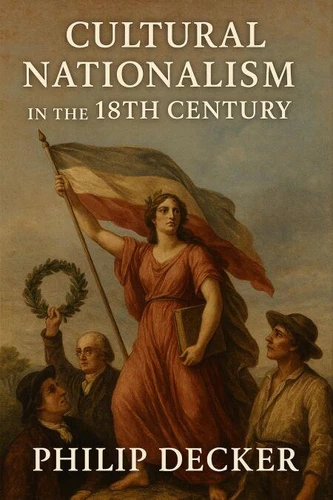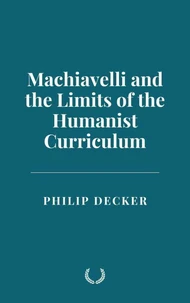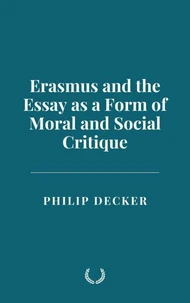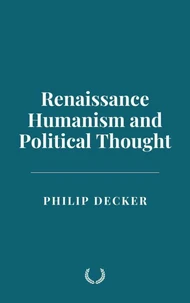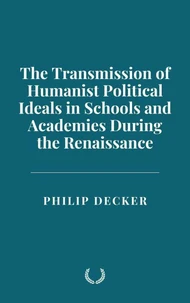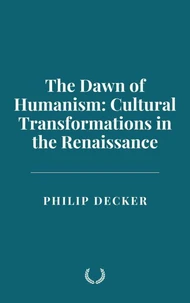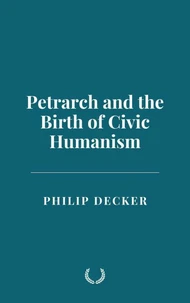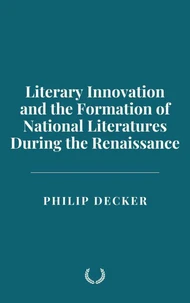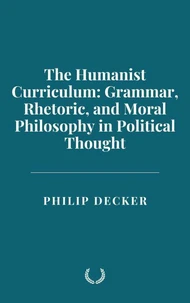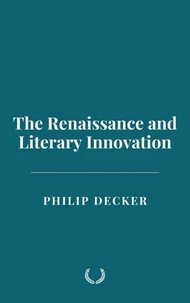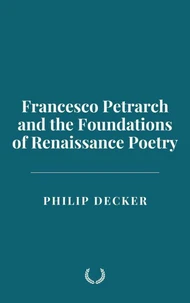Cultural Nationalism in the 18th Century
Par :Formats :
Disponible dans votre compte client Decitre ou Furet du Nord dès validation de votre commande. Le format ePub est :
- Compatible avec une lecture sur My Vivlio (smartphone, tablette, ordinateur)
- Compatible avec une lecture sur liseuses Vivlio
- Pour les liseuses autres que Vivlio, vous devez utiliser le logiciel Adobe Digital Edition. Non compatible avec la lecture sur les liseuses Kindle, Remarkable et Sony
 , qui est-ce ?
, qui est-ce ?Notre partenaire de plateforme de lecture numérique où vous retrouverez l'ensemble de vos ebooks gratuitement
Pour en savoir plus sur nos ebooks, consultez notre aide en ligne ici
- FormatePub
- ISBN8231106509
- EAN9798231106509
- Date de parution09/05/2025
- Protection num.pas de protection
- Infos supplémentairesepub
- ÉditeurWalzone Press
Résumé
"Cultural Nationalism in the 18th Century" by Philip Decker offers a compelling exploration of the intellectual and cultural forces that shaped the modern nation-state. As nationalism swept across Europe, it was not only a political movement but a cultural revolution-one that redefined identity, history, and tradition. In this book, Decker dives deep into how the 18th century's cultural thinkers, writers, and revolutionaries reshaped the way we understand the nation, highlighting the pivotal role of language, art, and folk traditions in forging a collective identity.
From the sweeping ideals of the French Revolution to the Romantic revival of ancient myths and languages, this book traces the birth of cultural nationalism as a force that transcended political boundaries and inspired movements for independence worldwide. Cultural Nationalism in the 18th Century is an essential read for anyone interested in understanding how cultural pride, national myths, and intellectual movements combined to give rise to the powerful force of modern nationalism-affecting everything from the revolutions of the past to today's global political climate.
From the sweeping ideals of the French Revolution to the Romantic revival of ancient myths and languages, this book traces the birth of cultural nationalism as a force that transcended political boundaries and inspired movements for independence worldwide. Cultural Nationalism in the 18th Century is an essential read for anyone interested in understanding how cultural pride, national myths, and intellectual movements combined to give rise to the powerful force of modern nationalism-affecting everything from the revolutions of the past to today's global political climate.
"Cultural Nationalism in the 18th Century" by Philip Decker offers a compelling exploration of the intellectual and cultural forces that shaped the modern nation-state. As nationalism swept across Europe, it was not only a political movement but a cultural revolution-one that redefined identity, history, and tradition. In this book, Decker dives deep into how the 18th century's cultural thinkers, writers, and revolutionaries reshaped the way we understand the nation, highlighting the pivotal role of language, art, and folk traditions in forging a collective identity.
From the sweeping ideals of the French Revolution to the Romantic revival of ancient myths and languages, this book traces the birth of cultural nationalism as a force that transcended political boundaries and inspired movements for independence worldwide. Cultural Nationalism in the 18th Century is an essential read for anyone interested in understanding how cultural pride, national myths, and intellectual movements combined to give rise to the powerful force of modern nationalism-affecting everything from the revolutions of the past to today's global political climate.
From the sweeping ideals of the French Revolution to the Romantic revival of ancient myths and languages, this book traces the birth of cultural nationalism as a force that transcended political boundaries and inspired movements for independence worldwide. Cultural Nationalism in the 18th Century is an essential read for anyone interested in understanding how cultural pride, national myths, and intellectual movements combined to give rise to the powerful force of modern nationalism-affecting everything from the revolutions of the past to today's global political climate.

